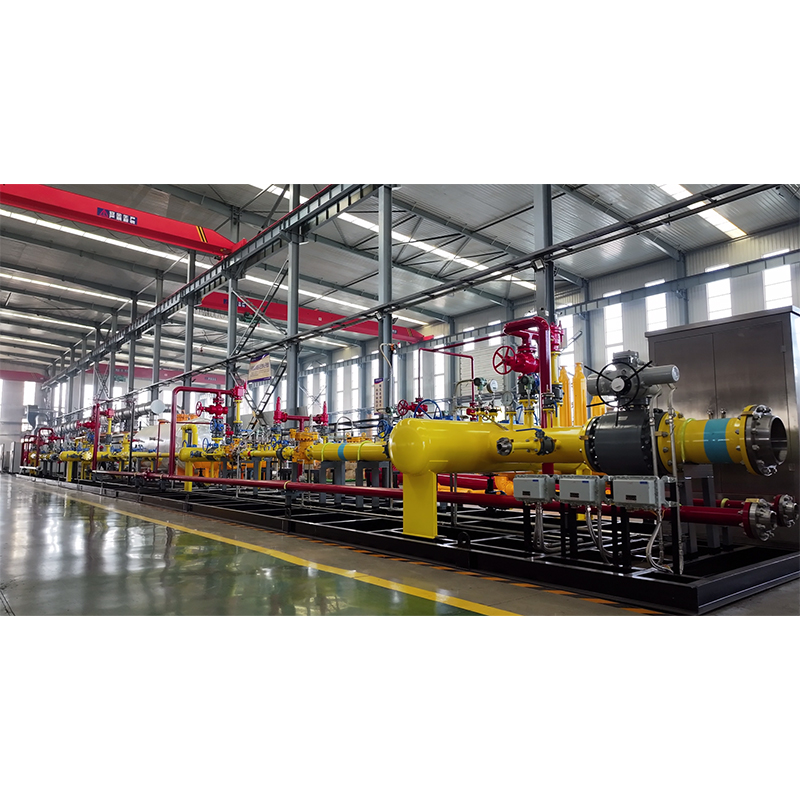
Dec . 04, 2024 09:38
Back to list
gas coalescer
Understanding Gas Coalescers Principles, Applications, and Benefits
Gas coalescers are essential components in various industrial processes, primarily designed to enhance the efficiency of gas purification systems. By effectively separating gas streams from impurities, moisture, and other contaminants, gas coalescers play a critical role in ensuring the reliability and longevity of equipment while maintaining the quality of the final product.
What is a Gas Coalescer?
A gas coalescer is a filtration system that operates on the principle of coalescence, where smaller droplets of liquid are combined to form larger droplets. This process aids in the separation of liquids from gases, allowing for the effective removal of water, hydrocarbons, and other contaminants. Typically, these systems utilize a series of filtration media, such as fiber or mesh, which are designed to encourage the merging of smaller droplets into larger ones so that they can be easily removed through gravitational forces or other separative methods.
Working Principle
The operation of a gas coalescer begins with the incoming gas stream being directed through the coalescer unit. As the gas passes through the filtration media, contaminants such as water and particulates come into contact with the fibers, causing the smaller droplets to coalesce into larger droplets. Once the droplets have reached a sufficient size, they can separate from the gas stream due to gravity and flow downwards to be drained away, while the cleaner gas continues through the system.
Most gas coalescers are equipped with a series of stages to maximize the separation efficiency. The first stage typically handles the coarse contaminants, while subsequent stages target finer particles and smaller droplets. Additionally, some systems include a pre-filter to remove larger solid particles before the gas reaches the coalescing stage, extending the life of the coalescing elements.
Applications of Gas Coalescers
Gas coalescers find applications across various industries, including oil and gas, chemical processing, food and beverage, and pharmaceuticals. In the oil and gas sector, for instance, coalescers are vital for ensuring that the natural gas extracted from the ground is free from water and other harmful contaminants before it is transported and processed.
In chemical processing, the purity of gases is crucial for maintaining reaction efficiencies, and thus gas coalescers play a significant role in ensuring that unwanted moisture does not interfere with chemical reactions. Similarly, in the food and beverage industry, where the purity and cleanliness of gases used in processes like carbonation are of utmost importance, gas coalescers contribute to maintaining high standards.
gas coalescer

Benefits of Using Gas Coalescers
The implementation of gas coalescers offers several notable benefits
1. Enhanced Equipment Life By removing contaminants from gas streams, coalescers help protect downstream equipment, reducing wear and tear and prolonging the life of compressors, turbines, and other machinery.
2. Improved Product Quality The purity of gases is critical to ensuring that end products meet quality standards. Coalescers provide a reliable means of maintaining gas quality throughout processing.
3. Reduced Downtime Effective separation of liquids from gases results in fewer interruptions in operations due to maintenance or repair needs. This increase in operational efficiency translates to lower downtime and cost savings.
4. Environmental Compliance Industries are increasingly held accountable for their emissions and waste management practices. By utilizing gas coalescers, companies can minimize harmful discharges and enhance their compliance with environmental regulations.
5. Cost Efficiency Although the initial investment in gas coalescers may be significant, the long-term savings from reduced maintenance, increased equipment lifespan, and improved operational efficiencies often outweigh these costs.
Conclusion
In summary, gas coalescers are critical systems for enhancing the efficiency and reliability of various industrial processes. They ensure the effective separation of moisture and contaminants from gas streams, contributing to longer equipment lifespans, improved product quality, and significant cost savings. As industries continue to evolve and place higher demands on product purity and operational efficiency, the role of gas coalescers will only become more vital. Investing in high-quality gas coalescers is not merely a maintenance choice but a strategic decision that can yield substantial benefits across many industrial sectors.
Next:
Latest news
-
Safety Valve Spring-Loaded Design Overpressure ProtectionNewsJul.25,2025
-
Precision Voltage Regulator AC5 Accuracy Grade PerformanceNewsJul.25,2025
-
Natural Gas Pressure Regulating Skid Industrial Pipeline ApplicationsNewsJul.25,2025
-
Natural Gas Filter Stainless Steel Mesh Element DesignNewsJul.25,2025
-
Gas Pressure Regulator Valve Direct-Acting Spring-Loaded DesignNewsJul.25,2025
-
Decompression Equipment Multi-Stage Heat Exchange System DesignNewsJul.25,2025

